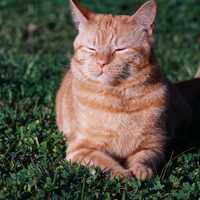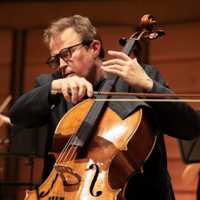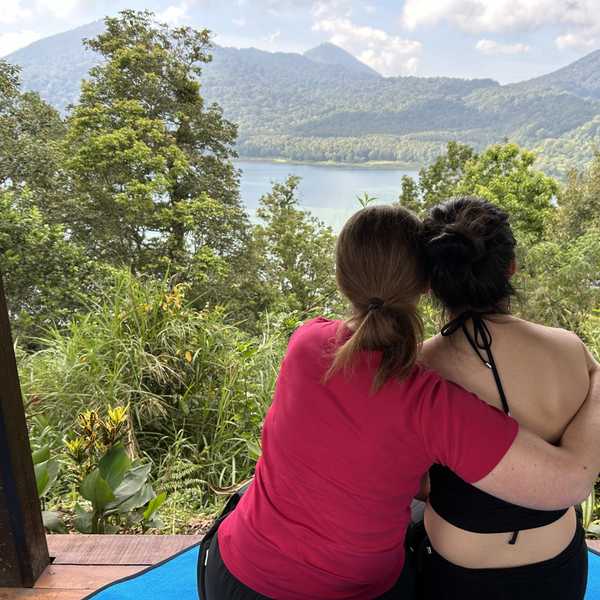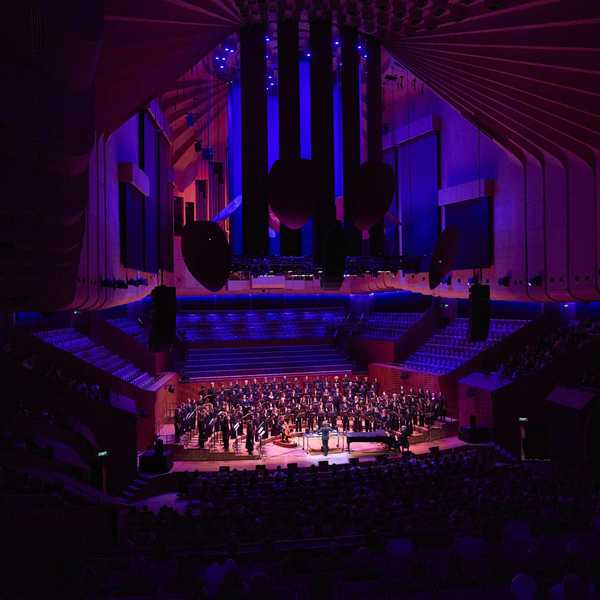FILMMAKER JONATHAN SEQUIRA INTERVIEW BY PARIS POMPOR

Just 12 days before Christmas 1977, in the same building as this very radio station – Paddington Town Hall – tenaciously independent Australian band Radio Birdman played a show that would go down in history books. Not only was it to be their final Sydney show before they broke-up in London just six ugly months later, the Paddington gig was also noteworthy for the 2000 or so fans who packed the hall and then trashed it. Whether they actually “trashed it” is a moot point, but there were bloodied handprints on the walls and things certainly turned a bit more frenzied than usual Birdman gigs. Hard to imagine that happening in Paddington today, where real estate-obsessed residents more interested in designer prams and dogs would have invoked the lock-out law spirit at the first sight of an amp being wheeled into the building mid-afternoon for soundcheck.
The above story is just one in a new documentary about Radio Birdman by Sydney filmmaker Jonathan Sequeira, called Descent Into The Maelstrom. Others stories detail band factions/frictions and a UK tour Kombi known as The Van Of Hate, as well as their halcyon days down the road from Paddington Town Hall at the Funhouse (Oxford Hotel) where crazy-good times eventually turned into painfully sobering ones when the Hells Angels beat up a band member. At The Funhouse, eclectic crowds made up of Oxford Street queers, queerly dancing rockers and everyone in between, enjoyed the same Taylor Square dance floor space. The only rule for entry: No trendies. The main reason to be there? To see one of Radio Birdman’s now legendary, full-throttle performances.
With Descent Into The Maelstrom opening in cinemas across Australia this month, Eastside Radio caught up with director Jonathan Sequeira to ask him a few questions.
PP: The Radio Birdman logo is something I’ve always been aware of, but not until seeing your film did it dawn on me how viscerally striking it is on so many levels. It features heavily in the film, even as a backdrop to interviews. Can you talk about your relationship to it?
JS: I think it means something more to me know than before I started the film. Everyone in the Birdman ‘family’ has been so welcoming, and that includes those close to the band from the beginning. There’s still a sense of comeraderie and being involved in something important. That’s what I see when I look at the symbol. As the fans say in the movie, there’s a sense of belonging to a group. Alley Brereton talks about not being an ‘outsider’, but being an ‘insider’. If you know Radio Birdman, and you recognise the symbol, then you know something special that other people aren’t aware of.

PP: Also essential to the film’s look and feel are the wonderful illustrations by bassist Warwick Gilbert. Some of these have also been part of an exhibition, but in your film they often beautifully capture the feel of historical moments in the story where there’s no archival footage. Tell us about these illustrations and how they came to be part of the film.
JS: There are always parts of an historical documentary with an absence of footage or stills. There’s no film footage of Galipoli for example. What do you do? You can do re-enactments, use inappropriate photos or other documents of the time. Animation is also one of the options and has been used in documentaries since the 1950s. I didn’t know what to do for a few sequences, but Warwick sent me some photos, including some storyboards for “The Living Brain” sequence, and said he’d always wanted to do an animated film of it. He was an animator for years working at Burbank and Hanna Barbera and his art is brilliant! So it just seemed perfect, and I asked him to do them in colour and illustrate a few other sequences. He loved the idea and did an amazing job. People have really responded to them more than I imagined. I loved getting his emails and laughing at his interpretations. It’s a great feeling when someone delivers and it’s better than you can imagine. I was careful to use them sparingly across the film, they are set evenly apart at certain points, and only for particular stories that were a very personal account of events. Everything about the film had to be ‘authentic’ and ‘real’ and it wouldn’t have worked if it was an outsider. The strength is that it’s Warwick’s account and he was there.
PP: There’s also some great archival footage in the film and photos. What was the process of finding this material?
JS: Archival research was a huge task! Some of it came in early, but as you put the film together you realise what specific things you need. The band themselves, but especially friends and fans were great. George Munoz who features in the film had a good collection of images already scanned. Most of the photos people were happy to share. Ria Lyne had great photos of The Rats and Carl Rorke and was very generous, likewise Bruce Tindale, Janet Thomas and numerous others, I honestly can’t list them all. Everyone seemed happy to help tell the story of something that was very important to them. Alley Brereton and Jules Normington also had great photos of Darlinghurst and surrounds that were really important. It was great to see pictures that had sat in the bottom of a drawer for forty years. For some I was able to scan negatives that even the owners hadn’t seen for that long, so it was nice to be able to partly return the favour.
PP: You’ve worked for ABC and been involved in music videos, but what’s your connection to Radio Birdman and how did you come to be making this film?
JS: I wasn’t a ‘fan’ as such, but I loved the music. I really didn’t know much about them except that they were the first of the whole Australian independent scene. They were definitely before my time! The film came about because my brother and co-producer Mark Sequeira was doing the vinyl pressing for them through his company Matrix Vinyl. I ended up authoring the DVD for the box set, so I had access to the band’s archival material, amazing footage of an amazing band! So I just asked their manager, John Needham. I suppose anybody could have done the same. The difference was that I followed through when other people hadn’t. I put something in writing to the band and just chipped away at the whole thing over a couple of years, in between paid work and study.
I also made sure I did the right thing by everybody at every step of the way as earning their trust was important. I cut a rough trailer at one point, after I’d done the interviews, and it was great to get feedback from everyone including Deniz Tek saying: “you really ‘get’ the band”. That was reassuring. From then on in it was just a matter of keep going till you get it done.

PP: There are many stories, on screen and off, about the tensions within the band, but there have also been reunions and a recent tour with Died Pretty. Was everyone keen to take part in your film? They all seem up for the task and fairly happy on camera.
JS: They are all such intelligent and articulate people with strong personalities so it was mostly easy. I met up with Ron Keeley when he was in Australia for a coffee and had a chat about what I wanted to do. He seemed happy with my approach, so that was really easy, he’s such a lovely guy. Rob [Younger] was a bit reticent as he can be quite shy, but that was a fun interview and he’s charming as well. Overall, everyone was just glad to be able to have their say.
PP: Keyboardist Pip Hoyle and Warwick Gilbert are particularly interesting characters and therefore come across really well in the documentary. Personalities like these are every director’s dream. How did you decide on the balance of who would have the most time on screen to tell their side of the tale?
JS: Yes, Pip and Warwick interviews were hilarious and a lot of fun. We had to stifle a lot of laughs behind the camera. But also people like Paul Gearside who started the fan club, they just made us feel welcome as though they’d known us for years. There was so much good material, the DVD will have hours that hit the cutting room floor! My approach was to let people have their say, especially if it’s conflicting memories. It wasn’t for me to decide what’s true or what isn’t. It was 40 years ago, so of course people remember things differently, even if you don’t take into account their own perspective.
PP: It’s terrific that the film is enjoying a cinema run, because not many music documentaries do in Australia. Was that difficult to set up?
JS: We were lucky to have the support of Event Cinemas, they were fantastic! I think cinemas are generally more open to independent films as they have a lot of screens to fill these days, so it’s actually easier than people realise. The film distribution company is like the indie record label – who needs it? It’s being replaced by artists just doing it themselves. I could talk a lot about this, and when the dust settles I’ll probably put something together for anyone looking to do the same; tell them my experiences which might be helpful. Lots of pitfalls but it can be done.
PP: Given this is your first feature length film, has it given you a thirst for making more music documentaries? What’s next for you?
JS: Hard to believe it’s all done. It’s been an amazing learning experience and [we] made plenty of mistakes along the way. More important than my next project is that I hope other people get out there and make something, film or otherwise. You just have to be really aware of your own failings and work towards making the best film you can. Don’t settle for “that’s good enough”. I’m working of a feature drama with my other brother, Chris Sequeira, who has done a fair bit of comic book writing. That will take a couple of years so there will be smaller projects in between but not another feature music documentary. There’s no other band, or story, as important as Radio Birdman so it would feel like a step down. Really I just need to earn a living!
DESCENT INTO THE MAELSTROM is playing select sessions in cinemas from July 20. Check cinema guides and head to the film’s website: descentintothemaelstrom.net

Share "RADIO BIRDMAN: MOVIE MAELSTROM"
Copy












